Publications
Articles, publications, books, tools and multimedia features from the U.S. Institute of Peace provide the latest news, analysis, research findings, practitioner guides and reports, all related to the conflict zones and issues that are at the center of the Institute’s work to prevent and reduce violent conflict.
Question And Answer
Blinken’s China Trip Shows Both Sides Want to Stabilize Ties

Sarhang Hamasaeed on Iraq’s Elections
“All the energy of the country is focused on October 10” as Iraq prepares for crucial parliamentary elections, says USIP’s Sarhang Hamasaeed. “We’ll see if it will produce a government and a parliament that [is] closer to what the people expect … and restore some of the faith of the voters in the process.”
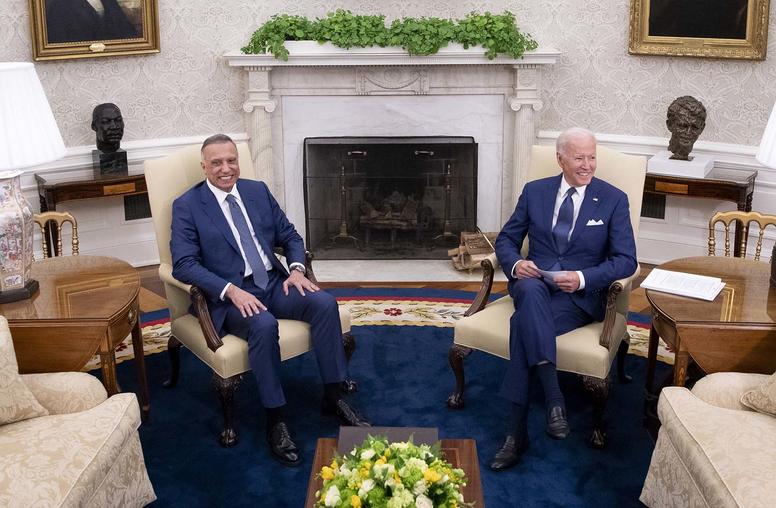
Beyond Security: The Quest for a Sustained, Strategic U.S.-Iraq Partnership
On Monday, President Joe Biden received Iraqi Prime Minister Mustafa al-Kadhimi at the Oval Office to strengthen bilateral relations and discuss matters of mutual interest, key among them being the future of U.S. troops in Iraq. Despite widespread thinking that Iraq and the Middle East do not rank high in the mix of the Biden administration’s priorities, there have been clear signals that Iraq remains important enough to the United States and that Kadhimi and his government are partners that the United States can work with and should support. While most of the media attention focused on the announcement of the change in U.S. force posture in Iraq, the key takeaway from this week’s meeting is that the United States and Iraq seek to maintain their strategic partnership — and build on it.
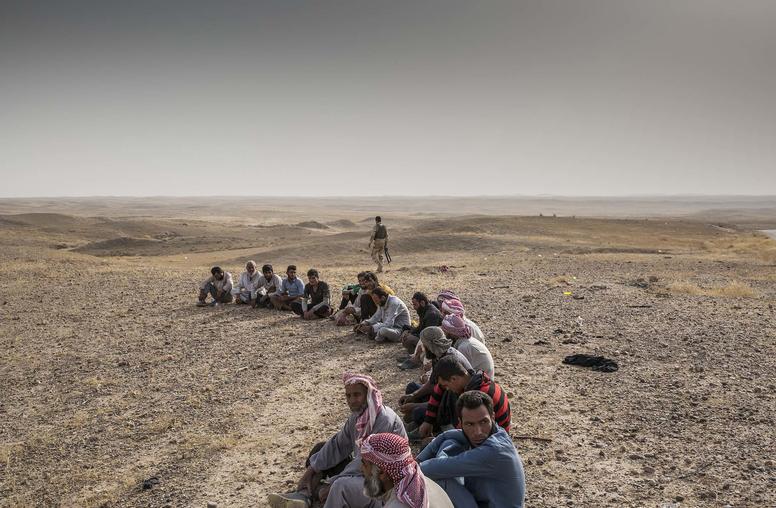
ISIS-Driven Displacement Remains Key Challenge as Iraq Prepares for Elections
Iraq remains a struggling nation confronting enormous, social, economic and reconstruction challenges yet progressing in critical areas such as resettling its displaced population and preparing for national elections this fall, two ministers of the Baghdad government said.
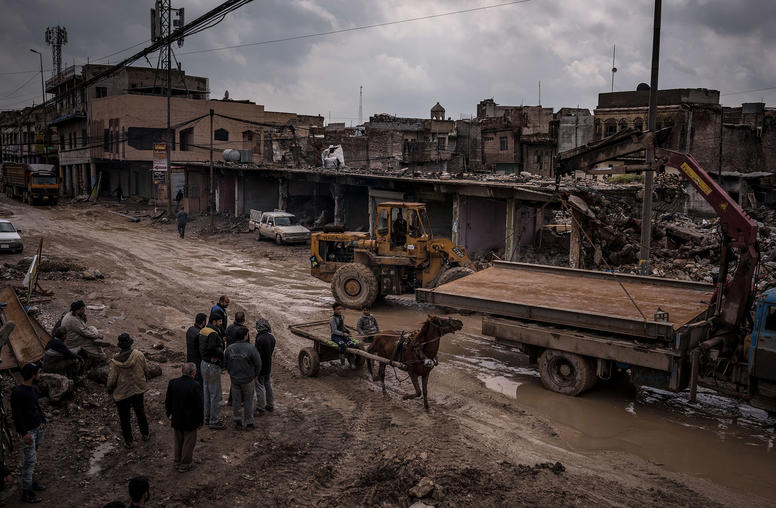
Unemployment Replaces ISIS as Top Security Concern for Minorities in Iraq
In the summer of 2014, the Islamic State group (ISIS) seized control of much of Iraq’s Nineveh province, including the provincial capital of Mosul. The militant group committed genocide against ethnic and religious minorities. Today, more than three years since the military defeat of ISIS in Iraq, ethnic and religious minority residents of three key districts of Nineveh say rampant unemployment, not ISIS, is their top security concern, according to data gathered by the United States Institute of Peace.

Sarhang Hamasaeed on Iraq’s Progress and Problems
With pivotal elections scheduled for October, USIP’s Sarhang Hamasaeed says Iraqis “want democracy, they’re fighting for it with their lives.” Meanwhile, Iraq is still grappling with simmering discontent among many citizens and the destabilizing role of foreign powers.
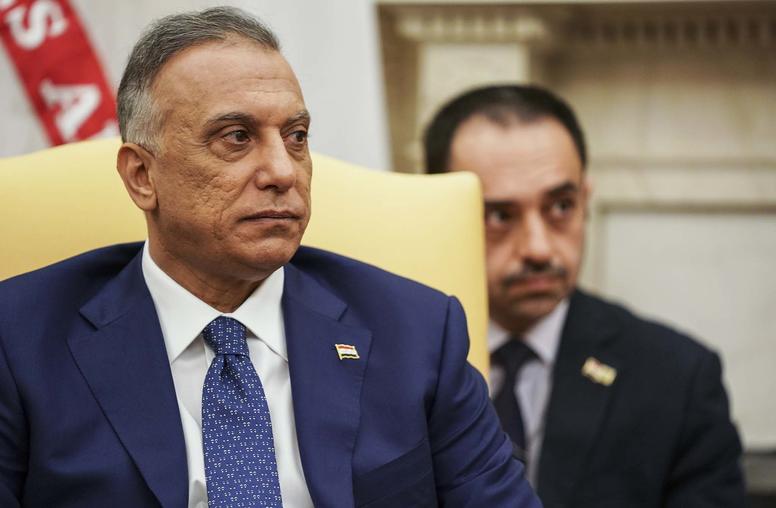
Where Is Iraq a Year After Prime Minister Kadhimi Took Office?
Iraqi Prime Minister Mustafa al-Kadhimi came to power a year ago today after a protest movement toppled the previous government and successive attempts to establish a new one failed. Inheriting a country deep in the midst of political and economic crises, Kadhimi has spent the last year trying to put Iraq back on the path toward stability all while navigating U.S.-Iran tensions playing out on Iraqi soil. USIP’s Elie Abouaoun and Sarhang Hamasaeed look at what Kadhimi has done to attempt to placate protesters, the importance of Iraq’s October national elections and how the prime minister has dealt with U.S.-Iran tensions.
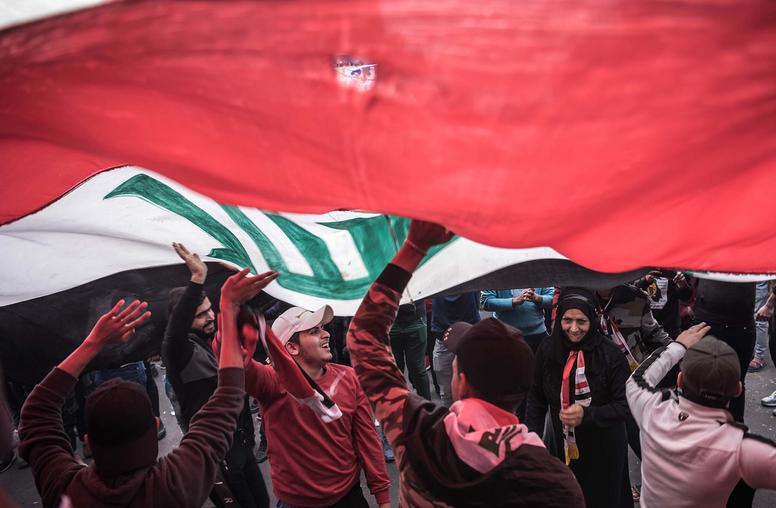
New Talks Could Help Iraq Find Room to Stabilize Amid Crises
As Iraq’s government struggles to build stability in the face of economic decline, COVID, political protest and periodic violence, it may see new hope for some maneuvering room in its narrow political space between the United States and Iran. One day after U.S. and Iranian officials agreed through intermediaries to work toward restoring the 2015 accord over Iran’s nuclear program, American and Iraqi diplomats announced an intent to remove U.S. combat forces from Iraq. Both initiatives face deep uncertainties. But if successful they could widen Iraq’s difficult path toward peace.
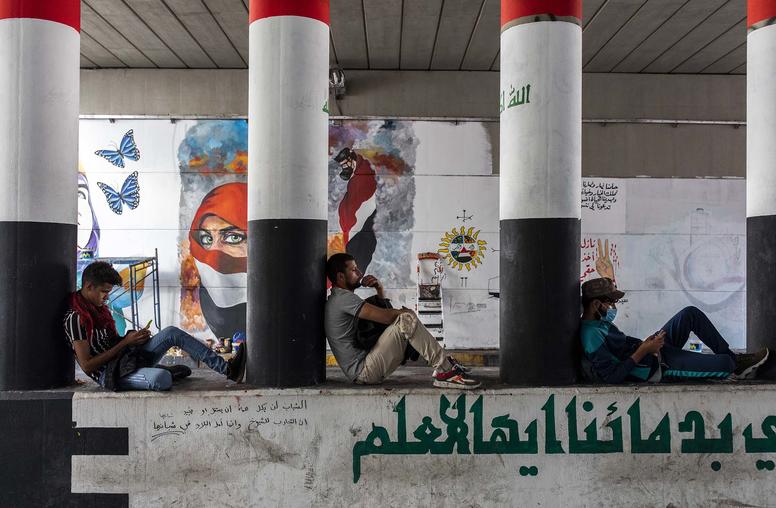
U.S., Iraqi Envoys Call for Continued Partnership 18 Years After Saddam’s Fall
Eighteen years after the overthrow of Saddam Hussein, Iraq is still in the midst of a rocky transition, beset by governance, economic, social and security challenges. With the Biden administration setting its sights on sweeping portfolio of domestic and foreign policy issues, some fear the United States will lose focus on Iraq. But in remarks on Tuesday, the top American diplomat in Baghdad vowed continued American engagement. Ahead of a pivotal year for Iraq, “The United States is resolute in its commitment to supporting [a] stable, sovereign, democratic and prosperous Iraq,” said U.S. Ambassador to Iraq Matthew Tueller.
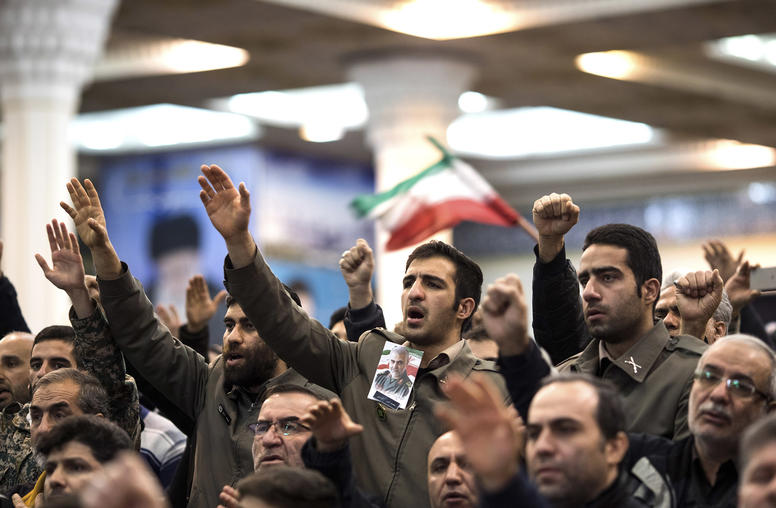
A Year After Soleimani Strike, Iraq Bears the Brunt of U.S.-Iran Tensions
The January 3, 2020 U.S. drone strike that killed powerful Iranian commander Qassem Soleimani on Iraqi soil marked an escalation in already simmering U.S.-Iran tensions. For Iraqi leaders, the Soleimani strike exacerbated an already challenging balancing act in maintaining Baghdad’s relationships with the United States and Iran, with whom it shares a long border and religious and social ties. During the past tumultuous year for Iraq, U.S. forces and Iranian-allied armed groups engaged in tit-for-tat attacks in Iraq. USIP’s Elie Abouaoun and Sarhang Hamasaeed look at how U.S.-Iran tensions played out last year in Iraq and the region and if the incoming U.S. administration, and its desire to reengage in nuclear talks with Iran, could help allay the impact on Iraq.
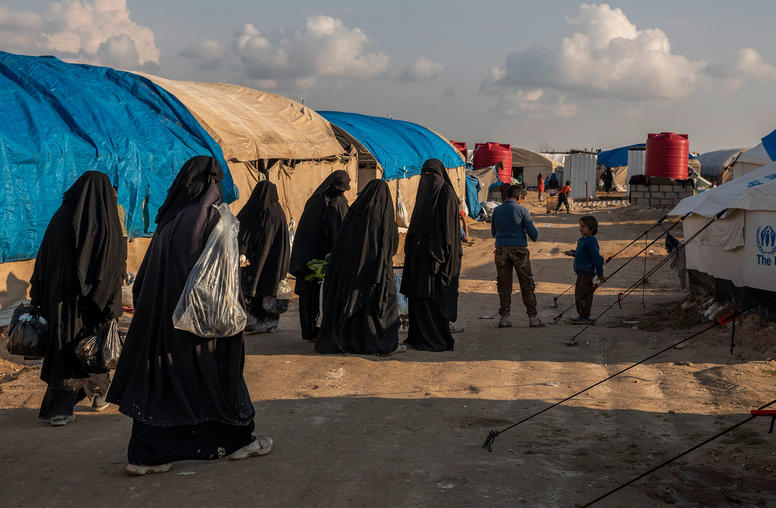
What Will Become of Iraqis in Al-Hol?
The al-Hol camp in northeast Syria—which holds tens of thousands who were living among ISIS before its territorial defeat—has presented the region and international community with a host of thorny challenges. What to do with the camp’s residents has particularly bedeviled the Kurdish authorities who run the camp as well as the governments of countries where residents came from. On October 5, Kurdish authorities said they would release the Syrians in the camp, where conditions have become increasingly unsustainable. But, nearly half of the camps’ 65,000 residents are Iraqis, and their prospect for return remains deeply uncertain. USIP’s Sarhang Hamasaeed discusses the situation facing Iraqis in al-Hol and the challenges ahead if they indeed return.